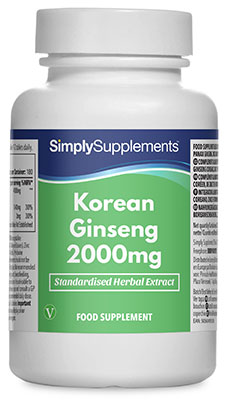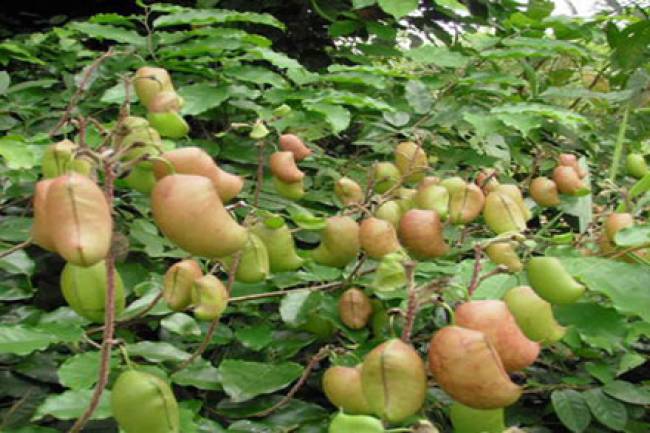The Fatigue Fighting Benefits of Ginseng

Ginseng has been used as a traditional herbal remedy for thousands of years, and the many proposed health benefits of ginseng are impressive. The herb works as an adaptogen – a substance that protects the body against stress and fatigue – and several different variations of the plant have been discovered in different regions of the world.
Different Types of Ginseng
There are more than eleven different species of ginseng plant. However, only a few are commonly used as medicinal remedies:
Korean Ginseng
Panax ginseng or Red Ginseng typically grows in the cooler climates of China and North Korea. It has been used in traditional Chinese medicine for more than four thousand years and is often referred to as the ‘original’ ginseng. The roots contain a wide array of nutrients, including antioxidants, vitamins, minerals, and intriguing compounds called ginsenosides. It is these that are believed to have a stimulating metabolic effect on the central nervous system, and provide a powerful boost to energy and stamina.
Korean ginseng ensures the body is working at optimal performance and decreases sensitivity to stress. For this reason, it is often taken by people recovering from an illness, or in need of sudden bursts of energy. Due to their high strength, Korean Ginseng supplements can lose their efficacy when taken every day, so many people choose to take the herb in cycles, the length of which depends on the ailment you are taking it for.
Siberian Ginseng
Eleutherococcus senticosus is not truly a ginseng as it contains eleutherosides, not ginsenosides. This distant cousin is the least potent form of ginseng and so Siberian Ginseng supplements are perfectly safe for long term use. Siberian Ginseng is more often used to relieve stress and adrenal fatigue, and also supports the nervous system, liver and lung function.
American Ginseng
Panax quinquefolius grows in parts of Canada and North American and is sometimes referred to as White Ginseng. It has a calming and restorative effect on the central nervous system, and it is often described as ‘cooling' energy, when compared to Korean ginsengs ‘warming' energy. American ginseng is also believed to fight fatigue and improve sexual performance.
Of the three, Korean Ginseng is best known worldwide for its energy boosting properties. The herb was discovered thousands of years ago in the mountains of Manchuria, China, and quickly became revered for its strengthening and rejuvenating powers.
Benefits of Ginseng
The benefits of ginseng vary depending on the type of ginseng used. They all work as adaptogens but they also offer many other health benefits.
There is evidence to show that ginseng can help to boost the immune system. One study found that American ginseng, in particular, can decrease the number and severity of colds in adults.
Other studies have found that ginseng can lower blood sugar levels. There is also early evidence that ginseng might temporarily – and modestly – improve mood, concentration and learning. Ginseng has also been studied as a way of treating cancer, heart disease, erectile dysfunction, hepatitis C, high blood pressure, and menopausal symptoms.
Korean Ginseng for Fatigue
All three types of ginseng can be effective at fighting fatigue to varying degrees, and, to date, panax ginseng is the best studied.
A randomised, double blind trial in Brazil found that panax ginseng works quicker than the prescription drug amitriptyline at relieving fatigue in fibromyalgia patients. For 12 weeks, 38 women were given 100mg of ginseng, 25mg per day of amitriptyline, or a placebo daily (the panax ginseng root used was standardised to 27% ginsenosides). Those taking ginseng reported a 31.7% reduction in pain after six weeks, which increased to 39.4% after twelve weeks.
They also reported a 25.9% improvement in fatigue after three weeks, which increased to 46.5% after twelve weeks. Sleep improved by 44.3% in total and anxiety reduced by 55.5%. However, those taking the amitriptyline drug and placebo also reported improvements in pain, fatigue, sleep quality, and anxiety, so larger studies are required.
Panax ginseng has also been studied in patients with Chronic Fatigue Syndrome, or ME. Trials have found that taking a supplement for just eight days can significantly improve energy, mood, and mental performance. Other studies have found that panax ginseng can reduce fatigue for sufferers of multiple sclerosis (MS). In one trial, 52 female MS patients were given 500mg of panax ginseng or a placebo daily for three months, and findings showed that ginseng reduced fatigue and had a significant positive effect on the quality of life compared to the placebo.
American Ginseng for Fatigue
A lot of the research into American Ginseng’s fatigue-fighting properties has been beyond regular tiredness. It’s has been shown to combat some aspects of cancer-related fatigue, which is common in patients undergoing chemotherapy. The exact chemical or ingredient that causes this is unknown, but considering the limited options to those suffering from fatigue, it may offer some sought-after relief.
One trial involved 360 patients who were either having or had recently finished treatment for cancer. They were given 2000mg of American ginseng or a placebo for eight weeks, and at the end of the trial those taking ginseng supplements reported significantly lower fatigue scores than those taking the placebo, particularly for ‘general' and ‘physical' fatigue. Many other studies have backed up this outcome, with the added benefit that there little toxicity associated with taking a relatively high ginseng supplement daily (around 2000mg).
Many experts are quick to mention that American Ginseng supplements can interfere with medication that’s commonly given to cancer survivors, or ongoing cancer treatments. It’s important that you consult your doctor before taking anything other than your prescribed treatment, if you or someone you know is in this situation.
Siberian Ginseng for Fatigue
The anti-fatigue effects of Siberian Ginseng are more contested than the two previous kinds (possibly due to its lack of ginsenosides). For the layperson, it can be hard to precisely see what is meant when ‘fatigue’ is mentioned. Research has been conducted on a wide range of fatigue conditions, from the chronic to muscular tiredness felt when exercising.
Siberian Ginseng, unfortunately, won’t give you a second wind during your gym routine: research in 2000 found that it does not improve cyclists’ performances during 10km rides. An interesting study was conducted on its effects on chronic fatigue: out of the 96 subjects with the condition, Siberian Ginseng was the most effective on the 45 subjects who had “less severe fatigue”.
Whilst this may seem like a less-than-ideal conclusion to draw, chronic fatigue syndrome is a notoriously complex condition with a myriad of causes, including infection, mental health and genetic factors. This type of ginseng may simply be more effective against some causes of fatigue and not others – further research will be important in discovering which.
Conclusion
There’s a lot to be said for ginseng’s overall fatigue fighting abilities. Naturally, the three main kinds affect the body in different ways, so it pays to investigate which will have the greatest effect on your physical state. Luckily, there’s decades of research to help you with making an informed choice, with optimistic results – especially regarding Korean Ginseng.
So if you’re looking to bring back the energy you once had, supplement your life with some ginseng. As always, consult with a doctor if you’re either already taking medication or have a diagnosed condition.
Sources:
https://www.sciencedirect.com/science/article/pii/S0378874114001585
https://journals.humankinetics.com/doi/abs/10.1123/ijsnem.10.4.444
https://www.ncbi.nlm.nih.gov/pubmed/14971626

 Nicole
Nicole 























